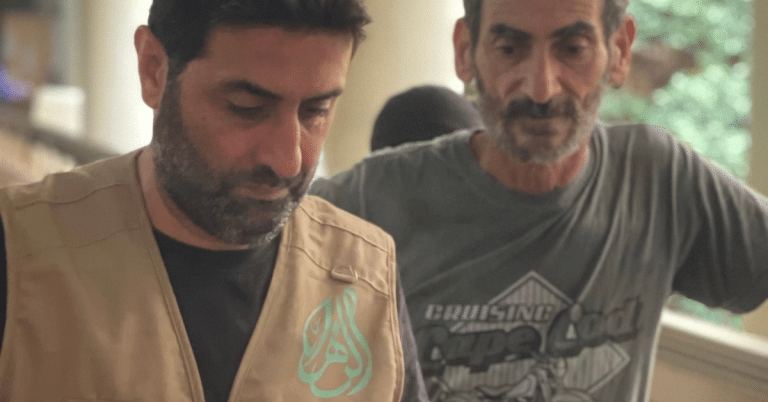The beauty of charity in Islam: 5 Ways Islam promotes charity for all!
Zakat, Sadaqa and Khums are all forms of charity in Islam.
Giving for charitable purposes is a key pillar of our religion, and while some forms of charity (such as Sadaqa) are recommended, others are obligatory (such as Khums).

Charity exists as an obligatory practice with very good reason. The organization of societies in historical and modern times have often resulted in unequal access to wealth, property and resources, leaving a different group to be deemed unworthy or undeserving. This societal imbalance results in an unjust and inequitable society.

Thus, charity in Islam operates to redistribute wealth to those who have been forgotten and undervalued by the organizations of society, regardless of their race, gender, status or creed.
Charity is seen as one of the most valuable and high-earning deeds. It is mentioned in the Holy Qur’an that righteousness exists in spending our cherished wealth to kinsfolk, the orphans, the poor and needy, and to those who ask for help (2:177). The Qur’an does not restrict charity to be distributed solely amongst Muslims but rather encourages the opposite. As Muslims, we are instructed to strive for an equitable and just society for all people.

Here are five ways that Islam endorses charity to and for all:
1. Charity in the smallest amounts

Charity does not have to be given in large or substantial amounts. Rather, we should strive to give charity in small ways too, as they are good deeds that gain for us high rewards and bring ease and sustenance for both the individual and the society. A famous saying of The Prophet Muhammad (sawa) is, “give charity, even if it is as small as a date” (Jami’ al-Sa’adat, vol. 2, pg. 145). All charitable deeds are seen by God and are accounted for, regardless of religious belief.
2. Charity to people who are enslaved or imprisoned

The Holy Qur’an states: “and they give (food) in spite of love for it, to the needy, the orphan, and the captive, saying to themselves, ‘we feed you only for the sake of Allah, seeking neither reward nor thanks from you” (76:8-9). In describing these individuals who have given food to the needy, orphan, and the captive the Qur’an goes on to state “So Allah will deliver them from the horror of that Day, and grant them radiance and joy, and reward them for their perseverance with a Garden in Paradise and garments of silk” (76:11-12). This is just one example highlighting the importance of charity to “captives”, including people who have been enslaved, imprisoned or are captives of war.
3. Charity to animals

It is reported that the grandson of The Prophet (sawa), Imam Hussein (as), witnessed an enslaved man feeding a dog from his morsel of food. He asked him why he was feeding the dog, and upon his answer, he bought the enslaved man a piece of land from his owner, freeing him due to his kindness and charity towards the animal. (Kunooz al Hikma, p. 260).
4. Charity to orphans

Imam Ali (as) is sometimes given the title “father of the orphans”, meaning he acted as a parental figure to hundreds of orphaned children during his lifetime. A tradition related by al-Hakam describes the Imam bringing honey to a group of orphans in such abundance that al-Hakam wished that he were an orphan himself. Feeding orphans was a common practice in the Imam’s (as) daily life. As Shi’a Muslims, we place orphans and vulnerable children at the fore-front of our charitable deeds, striving to follow the actions of The Prophet and the Ahlul Bayt (sawa).
(Ansab al-Ashraf, v. 2, p. 373).
5. Charity for the benefit of others and ourselves

While there are countless traditions and stories exemplifying the importance of charity to establish a just society and life, there is also a great need for charity to improve the piety of ourselves and those in our society. The Qur’an states: “you will never attain piety, until you spend from which you own and cherish” (63:92). While there is a need for charity in a tangible sense, there is also a great spiritual need for charity. As Muslims, we strive to attain piety and righteousness in our daily lives. Charity nourishes our society and communities, our own wealth, as well as our souls that are in desperate need.
At The Zahra(s) Trust Canada, we work our hardest to provide support and aid to those in need. It is our honour to serve both those in need, by providing them aid, and those who can give, by helping them fulfil their religious dues. Through our Khums Ijaza’s from multiple Maraja’ we are gratefully able to help individuals fulfil their Khums. If you are in need of fulfilling your Khums visit zahrafoundation.ca/khums for more information! You can also fulfill your Zakat, give a Sadaqah or generally support an individual in need by donating at zahrafoundation.ca/donate!
Contributed by: Lauren Iaccino


 Donate Now
Donate Now
 Donate
Donate









